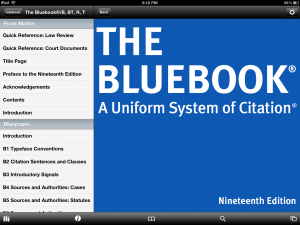 On June 28, actress Katie Holmes allegedly “blindsided” actor Tom Cruise, her husband of five-and-a-half years, by filing for divorce. Cruise was filming a new movie in Iceland when Holmes filed her divorce papers in New York, where she and their daughter Suri had been living.
On June 28, actress Katie Holmes allegedly “blindsided” actor Tom Cruise, her husband of five-and-a-half years, by filing for divorce. Cruise was filming a new movie in Iceland when Holmes filed her divorce papers in New York, where she and their daughter Suri had been living.
What made this story even more dramatic was the incredibly calculated way in which Holmes is rumored to have plotted her departure and her filing. Most media (gossip) reports claim that weeks (if not months) prior to June 28, Holmes set the wheels in motion, using pay-as-you-go cell phones to contact attorneys, cutting off ties with joint friends, firing staff that Cruise had hired, and renting a new apartment in New York City in her name only, allegedly telling Cruise that the new apartment had certain features that allowed for more privacy, even as she allegedly was professing her love for Cruise during phone calls with him. (Stories can be found here, here, here, here, and here, undoubtedly among many other places.)
Why Holmes chose New York rather than California as the venue for her filing could be due to one, or both, of two possible reasons, as speculated by a number of legal sources, none of whom are connected with the Holmes-Cruise case. First, filings in California are public, while filings in New York are sealed (and Holmes purportedly petitioned for an anonymous caption). This would allow the couple privacy as they worked through the unraveling of their marriage. Second, it was widely speculated that custody of Holmes’ and Cruise’s daughter would be an issue. Holmes requested sole legal custody, a move many thought occurred because Holmes (raised a Catholic) wanted to remove the influence of Scientology (Cruise’s professed religion) from Suri’s life, and a New York court is more likely than a California court to grant sole custody where parents cannot agree on child rearing issues.
Holmes and Cruise settled their divorce in 11 days and though little has been officially released about the terms, most reports agree that Holmes with have primary custody of Suri in New York and Cruise will have liberal visitation rights. Thereafter, Holmes and Cruise released a joint statement professing their commitment to work together as parents for their daughter’s best interests.
So, what’s there left to talk about?
What I keep coming back to again and again was not that Holmes decided to end her marriage, but how she went about doing it.
 As lawyers, we are often a conservative bunch. This may especially be so for litigators, who encounter the worst case scenarios of common experiences each and every day. Social media employment law cases are no exception. Inevitably, you will find yourself asking, “What on earth were they thinking when they did that?!”
As lawyers, we are often a conservative bunch. This may especially be so for litigators, who encounter the worst case scenarios of common experiences each and every day. Social media employment law cases are no exception. Inevitably, you will find yourself asking, “What on earth were they thinking when they did that?!”

